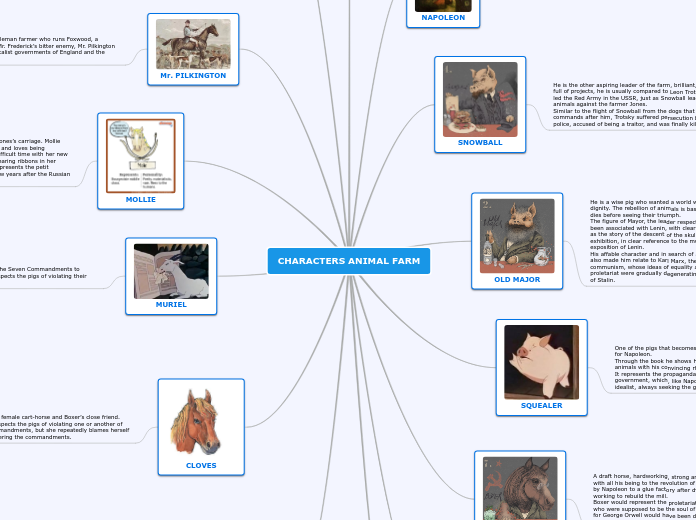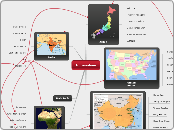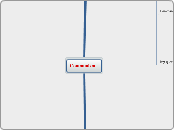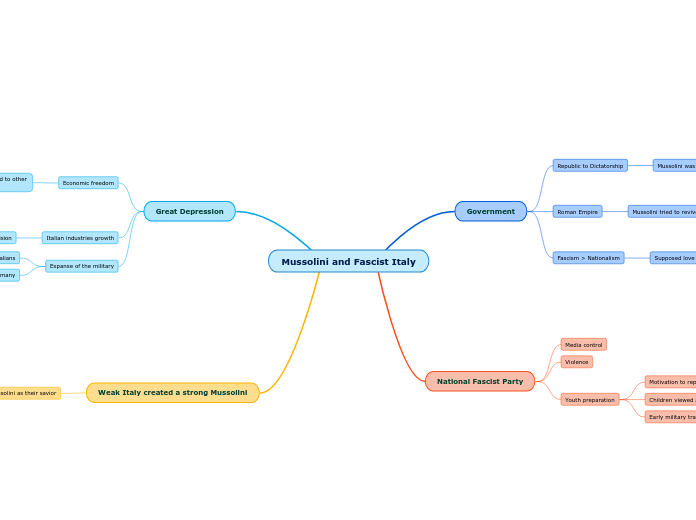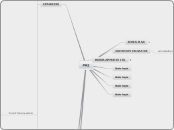por Elena Fernández hace 6 años
10194
CHARACTERS ANIMAL FARM
In a farm where animals seek equality and freedom, various characters play pivotal roles in shaping their fate. Napoleon, a pig with a strong personality, rises to power and becomes a dictator, betraying the other animals for his gain, symbolizing Joseph Stalin.
